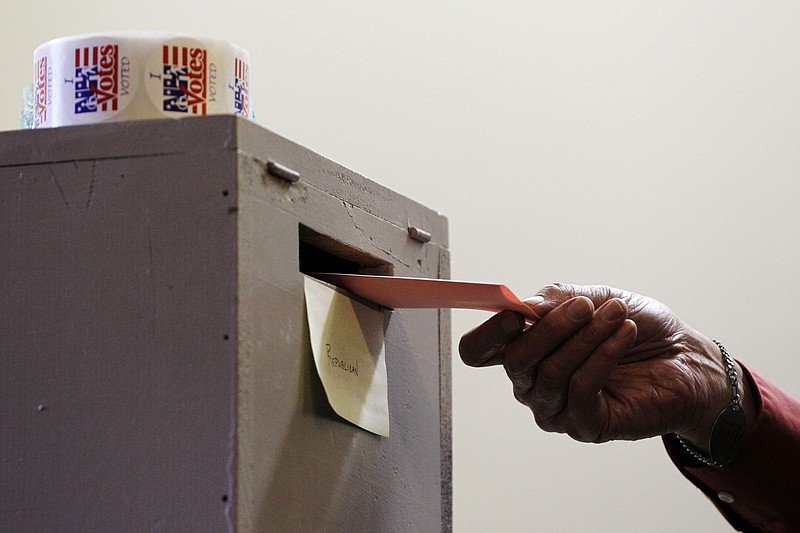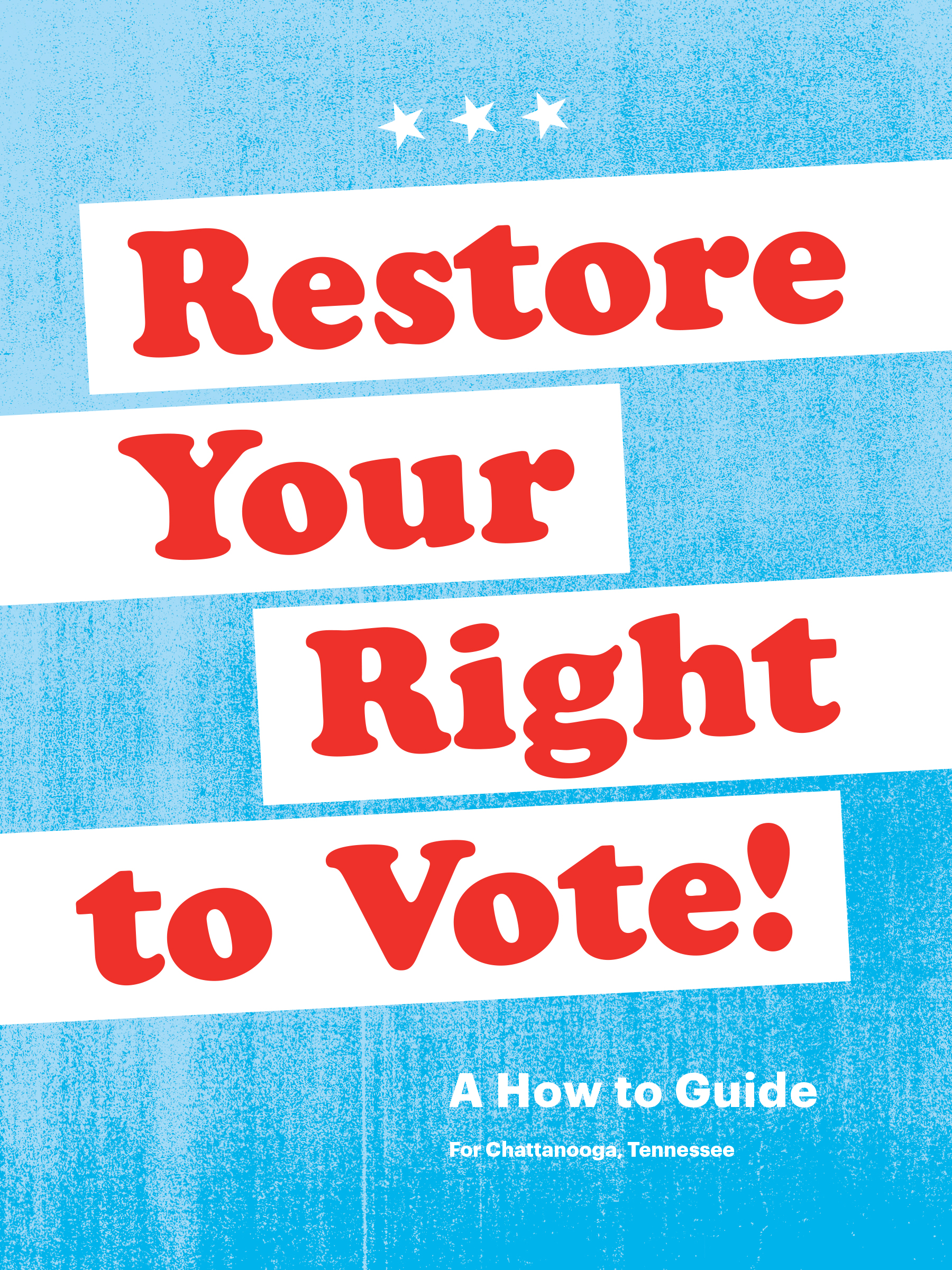"So long as I do not firmly and irrevocably possess the right to vote I do not possess myself." - Martin Luther King Jr.
Our local delegation of state legislators had breakfast recently with area leaders, asking for ideas about new legislation in 2018.
Here's one:
Overturn the law that prohibits ex-felons from voting.
It is a system that has become a prison that follows prison. By denying certain people the right to vote - the disenfranchisement of citizens with felony status - the state continues to punish long after a criminal sentence has been served.
In Tennessee, certain crimes - murder, rape, voter fraud, treason - result in a permanent loss of voting rights. Other felons, once their prison time is up, find their rights still suspended:
GET INVOLVED
To contact local representatives: capitol.tn.govFor more info: visit restoremyrights.com or contact the city attorney’s office at 423-643-8250.
View other columns by David Cook
Dependent on whether they've paid child support.
Or restitution.
Or court costs.
Or whether they're on probation.
Or parole.
In 2016, some 420,000 Tennesseans, or 8 percent of the population, have lost the right to vote, according to the American Civil Liberties Union of Tennessee.
Worst of all?
"In Tennessee, a shocking 21 percent of black people - more than one in five - are disenfranchised," the ACLU reports.
Historically, the South has long practiced ways to prevent blacks from voting. Literacy tests. Poll taxes. The threat of harm and lynching. The practice of disenfranchisement, as it falls so heavily on black Tennesseans, is only an indirect continuation of such sanctioned racism. According to legal scholar Michelle Alexander, more black men were disenfranchised in 2004 than in 1870.
Yet today, we should want to shed statewide injustice, making Tennessee a place of freedom, natural rights and second chances. Therefore, the men and women who have served their time should not be tied and yoked to the past, but have their rights restored without condition.
"If we really believe in a system of justice based on rehabilitation not retribution, there should be some recognition that as folks serve their time, we don't continue to punish them," said Jonathan Butler. "We don't continue to punish them disproportionately. We see most of these laws having adverse affects particularly on African-American men, and it is almost a double barrier, in some cases, more than double barrier, barring their rights to be fully reintegrated and participate in society."
Not long ago, Butler, who works in Neighborhood Services and Development for the city, began to work with Chattanooga city attorney Wade Hinton and his office to create a way to lower those barriers.
Their creation? A website that guides ex-felons through the complex maze of getting their rights restored.
It's called Restoremyrights.com.
After a series of yes-no questions, folks can find information on forms, record expungement, pro bono attorneys and more.
"When people have paid their debt, they have paid their debt," Butler said. "We're trying to give people a clean slate and make them whole again."
He's not alone.
This week, across the city, a free book will become available through the city attorney's office.
Called "Restore Your Right to Vote," it's the creation of Aggie Toppins, a graphic design professor and associate head of the art department at the University of Tennessee at Chattanooga.
"Our communities have so many problems with poverty and inequity - and hundreds of thousands of people in this state aren't voting, for one reason or another. Sometimes these problems can feel insurmountable," she said. "But I thought, 'Maybe I can do something small with what I know how to do.'"
Using a Causeway civic engagement grant, Toppins worked with area organizations to create the free book, which contains:
-Info on where to find and submit proper forms
-How to have a record expunged
-Info on job fairs, counseling, support
The book will be available through restoremyrights.com, city offices, the Hamilton County Election Commission, as well as Chattanooga Endeavors, Hope for the Inner City, Legal Aid of East Tennessee, and The Next Door. Toppins hopes parole and probation officers could carry copies, too.
"Anyone who may need this guide is welcome," she said. "I truly believe that if you've done your time, if you've paid your debt, you deserve your right to participate in democracy."
David Cook writes a Sunday column and can be reached at dcook@timesfreepress.com or 423-757-6329. Follow him on Facebook at DavidCookTFP.


